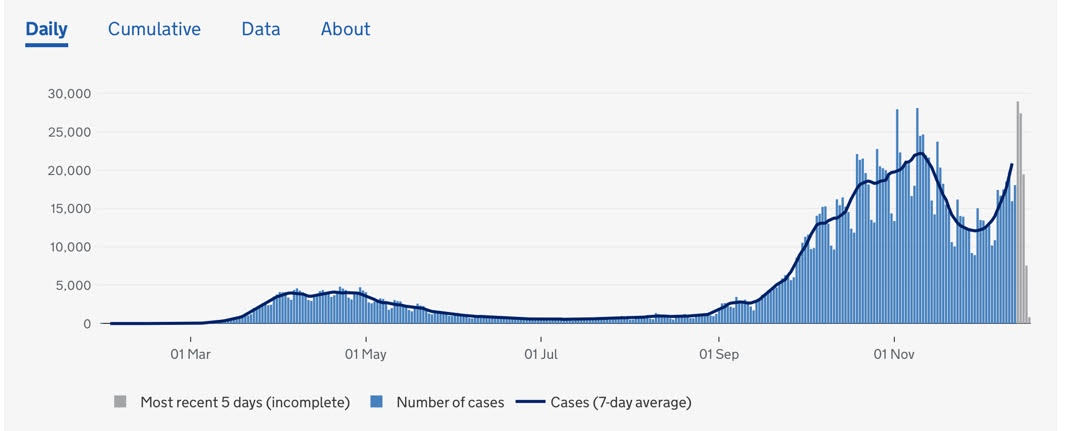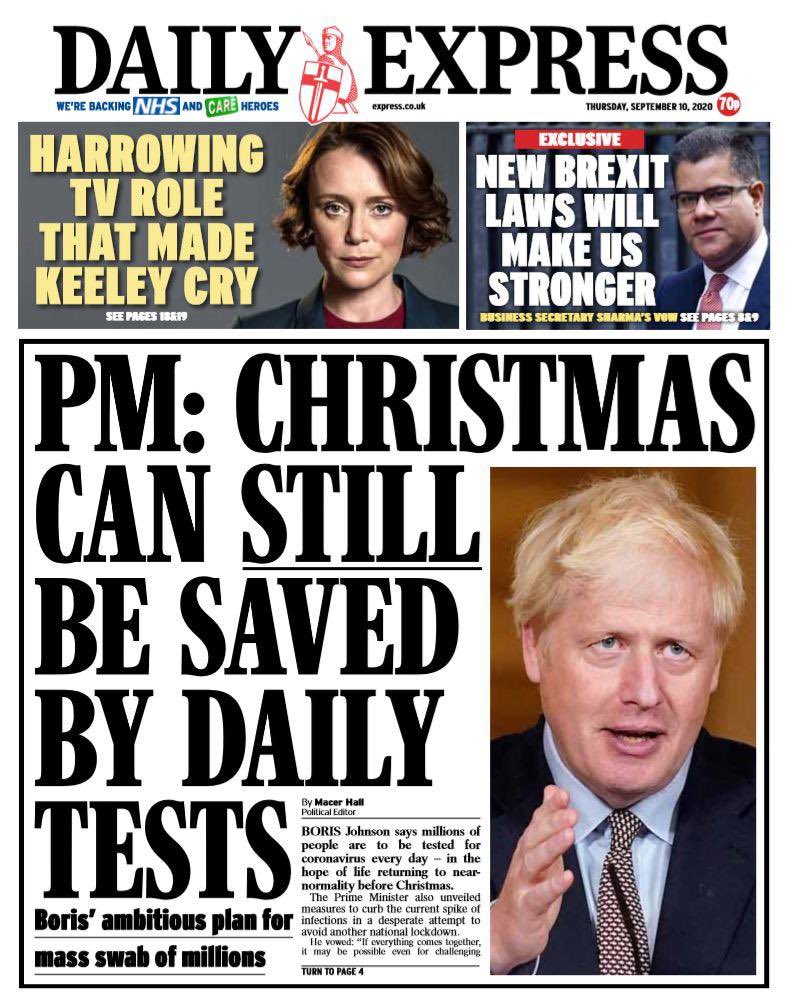Questions for ministers
There is a much emphasis being placed on the new strain. Scientists better placed to comment on that. Data is uncertain so precautionary principle should kick in and it has.
But it doesn't mean questions about previous policy are annulled-far from it.
There is a much emphasis being placed on the new strain. Scientists better placed to comment on that. Data is uncertain so precautionary principle should kick in and it has.
But it doesn't mean questions about previous policy are annulled-far from it.
Because the point is we were going into this where London wasn't in a good place to resist this new strain
Q1) Why was London, where cases were already high- put into T2 when lockdown ended? See graph below. Cases were already climbing during the end of lockdown itself.
Q1) Why was London, where cases were already high- put into T2 when lockdown ended? See graph below. Cases were already climbing during the end of lockdown itself.
Q2) You can extend that to the rest of the country. We left lockdown with cases much higher than after the first. This graph is for England. Many said at the time cases were still too high to enter tiers and that the tiers couldn't be guaranteed to sustain it, new strain or not.
Yes testing is improved now so earlier numbers potentially less reliable but there can be little doubt we emerged out of lockdown 2 with higher case rates than we did post lockdown 1
So-why did we relax so soon? If Christmas was the objective, the Irish approach...
So-why did we relax so soon? If Christmas was the objective, the Irish approach...
....which was to maintain tougher restrictions for longer to "save Christmas", seems to have worked. But relaxation in early December, strain or not, certainly hasn't.
Q3) What does this mean for tiers? It was predicted that T2 would contain the virus, T3 suppress it...
Q3) What does this mean for tiers? It was predicted that T2 would contain the virus, T3 suppress it...
...that's def not the case with the new strain but their efficacy was questionable even without it.
This is part of my script from a piece I made in Manchester in late November. This was not unique insight on my part- plenty were asking these questions at the time.
This is part of my script from a piece I made in Manchester in late November. This was not unique insight on my part- plenty were asking these questions at the time.
Q4) Given that context- was it really wise to commit to Christmas easing so far in advance? Wasn't it always inherently too risky?
A reminder of what Prof Andrew Hayward told Newsnight the night they were announced in late November. https://twitter.com/lewis_goodall/status/1331551660414545920?s=21
A reminder of what Prof Andrew Hayward told Newsnight the night they were announced in late November. https://twitter.com/lewis_goodall/status/1331551660414545920?s=21
Q5) There is much to be recommended in responding quickly to the virus. But London has had four different Covid policies in four weeks. Is there a point when such rapid changes in ministerial policy becomes counter productive? https://twitter.com/lewis_goodall/status/1340332625207189505?s=20
Q6) If ministers have been so concerned about this new strain in London and the South East, why did they threaten legal action against schools and councils in London when they wanted to close early this week? Should England move with Scotland and further defer the start of term?
Q7) And given we know T3 doesn't work in containing this new strain, why not take preemptive action in moving other parts of the country to T4? That's what Scotland has done despite not much of it being in the country.
Q8) And is it still govt policy that with the whole south east of England back in the toughest lockdown measures over Christmas, that we might still have a no deal Brexit, which would dramatically affect the country's main supply route, in exactly the region this new strain is?
Q9) What about HE? They're due to return in January. Should they? Or should universities start to put plans in place now to move to online learning? It's a huge internal movement of people, as we discovered to our cost in September.
Q10) PM said "when the facts change you have to change your approach"- but exactly was already known about the new strain on say, Wednesday, when he stuck to the Christmas plan?
Q11) We have profound restrictions returning and the possibility of a no deal Brexit (or a deal, still dramatic transformation of our relationship with the EU) and Parliament is in recess. Should it not be recalled?
Q12) On universities, consider there will be lots of students who have returned home to London and the South East in recent days. Can it be really be credible that they should go back to non T4 areas in January? https://twitter.com/lewis_goodall/status/1340362253254668288?s=20
Q13) What does this mean for test & trace? If this was a new mutation and the system is doing much better, why wasn't it contained? Is it ever going to work in doing what it was supposed to do, to prevent exactly what we've seen repeatedly- the return of severe restrictions?
Q14) What steps are being taken to fortify care homes in the south east? This could be a moment of serious, serious jeopardy for them.
Q15) To what extent do ministers think GOVT a) comms b) strategic approach needs to change in 2021? There’s a clear pattern now of the govt resisting a change many consider inevitable to the last min before conceding. Don’t we need to emphasise preemption rather than reaction?
And that strategy is related to comms. Critics say the pattern is clear: that the PM and ministers overpromise, telling the public what they think they want to hear- eg on Christmas but then have to backtrack. As we’re seeing with the packed trains tonight, that has consequences.
As I said in the first part of this thread, the important context of the last month or is that things looked bad before the new strain appeared. This revelation crystallises it. Question will now be why the govt persevered with plan A for so long  https://twitter.com/steven_swinford/status/1341149040814288899
https://twitter.com/steven_swinford/status/1341149040814288899
 https://twitter.com/steven_swinford/status/1341149040814288899
https://twitter.com/steven_swinford/status/1341149040814288899

 Read on Twitter
Read on Twitter







